HAPPY EARTH DAY! On this 50th Anniversary of Earth Day and during these incredibly difficult days, we are thinking of all of our friends around the world and hope everyone is safe and healthy. Earth Day is a great time to reflect on how important the natural world is to all of us and the simple actions that we can all take to reduce our impacts. And while we are home-bound, we can learn to better know and appreciate the birds and nature in our own backyards.
To say that the times are challenging is an understatement. We are confused and fearful at times. Avoiding contact with others outside of our household is an unusual and difficult transition; we are social beings by nature. It is important that we find ways to adapt to this situation, so we protect our mental health, while preserving our physical health.
The most important piece of advice that can be given at this point, is to stay active. Although we may not be able to leave the confines of our yards, we cannot allow ourselves to sink into a state where all is gloom and doom. Apart from catching up on, or picking up new, hobbies such as reading, cooking, or learning a language, one of the easiest and quickest ways to lower stress and anxiety levels is to immerse yourself in nature. The natural world has not stopped. Whether COVID-19 is with us or not, taking the time to observe our surroundings does much to improve our health and well-being.
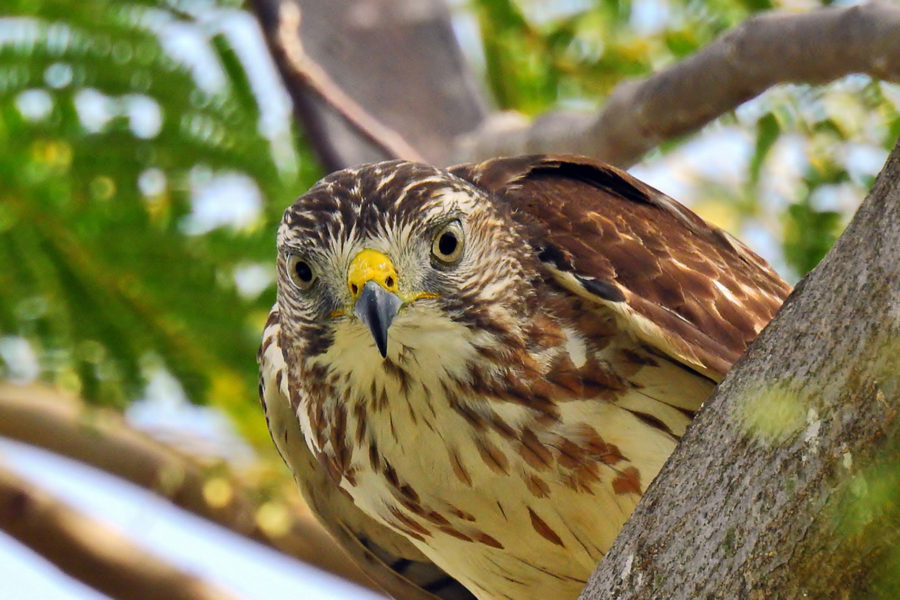
The Home Observatory
Many of us are “on lockdown” these days. Whether our home is a high-rise apartment in the city, a house with a garden, or a townhouse complex, we are spending almost all our time indoors. We are not encouraging anyone to break “stay home” orders designed for your own health and safety; but there are many simple ways you can be close to nature without any harmful side effects. Right from your window, patio, or back steps, you can observe the birds that pass by. You will likely start to see “new” birds! Sometimes these may be common residents, that you may have never observed properly before. It is almost as if you are seeing them for the first time.
Now is a great time to look for migrants that have started their journeys northward from the Caribbean. Look for warblers such as the lively American Redstart, the Black-and-White Warbler, or the attractive Prairie Warbler. Which migratory birds are still with us, and which ones are arriving? Make a note of the dates when you see a warbler for the first time, or a summer migrant, or a more unusual visitor that might just be passing through. It is a time of change in the bird world.
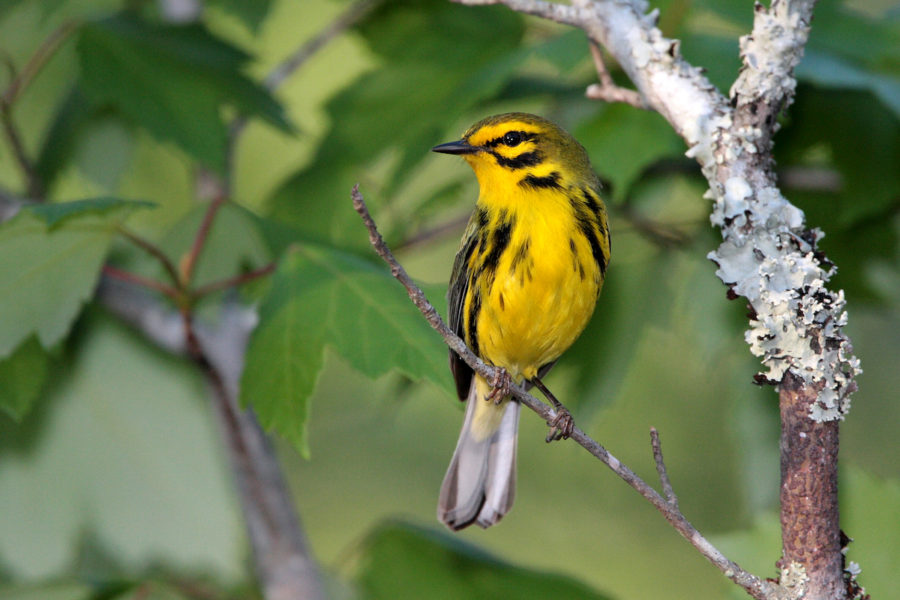
While some species are embarking on great journeys, other resident and endemic birds are settling down in yards and gardens across the region. It is springtime and that means the start of the breeding season for many. You may see a Bananaquit collecting nesting material in your yard. You can watch the amusing antics of the Loggerhead Kingbird darting for food for its young ones.
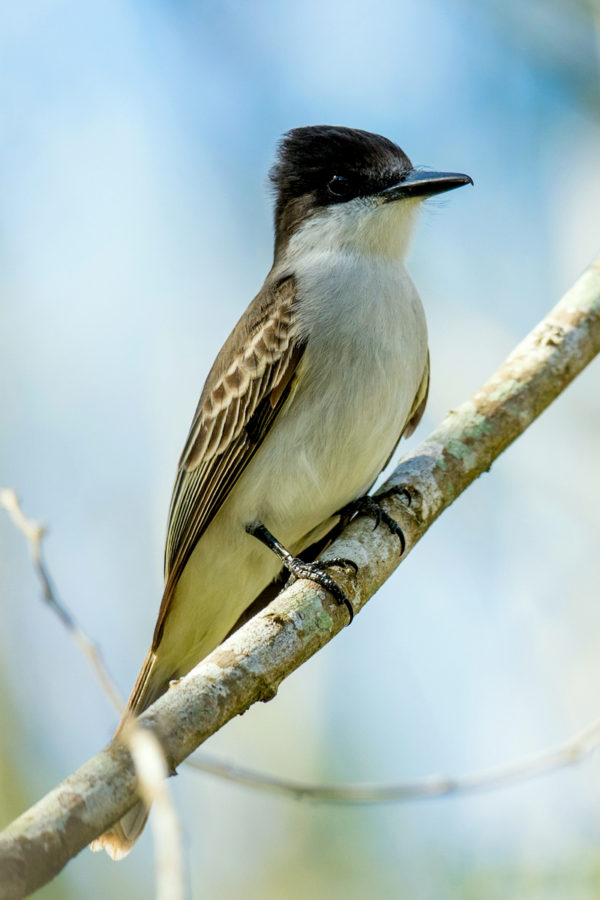
Some birds, such as Jamaica’s White-chinned Thrush, sing melodiously during the breeding season. Like the Red-legged Thrush, it is a common visitor at gardens and can be seen hopping along country roads looking for insects, lizards, and frogs to eat. And now, at dusk, you may hear the rasping call of the Antillean Nighthawk, chasing flying insects.
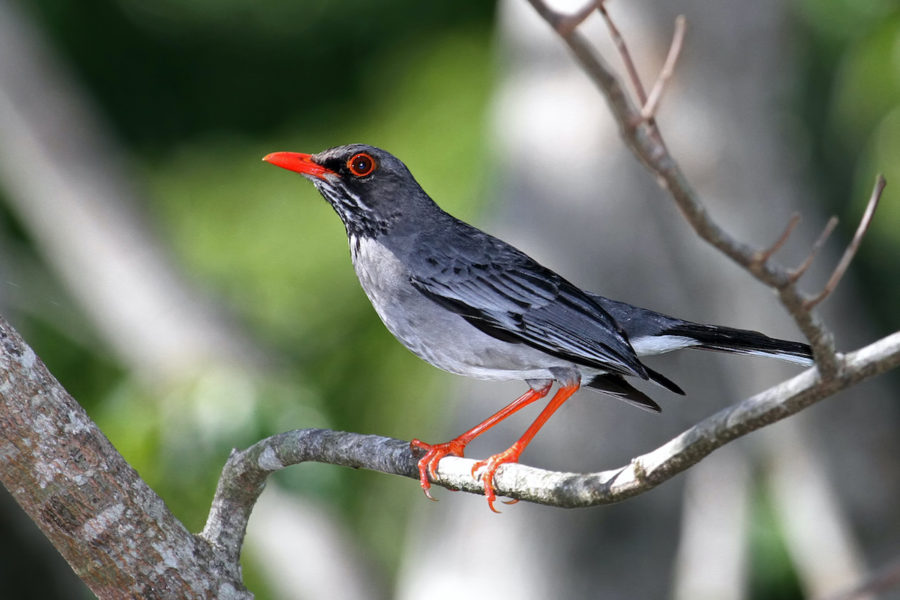
Bringing the Birds to You
So, what can we do to bring birds closer to us? We would suggest that you maintain your feeders and if you have the space in your yard, put up a bird bath or spray to attract birds to your yard. The birds will come to you, happily bathing. As the weather is beginning to heat up, birds get thirsty too, so you will find them sipping water.
Or what about the raptors? There are still quite a number around, including the intimidating Broad-winged or Red-tailed Hawks, that boldly announce their arrival with a loud scream. Or even the fearless American Kestrels. How about the majestic, commanding presence of one of our larger visiting raptors, the Osprey? Nature has not stood still; it is alive and vibrant all around us.
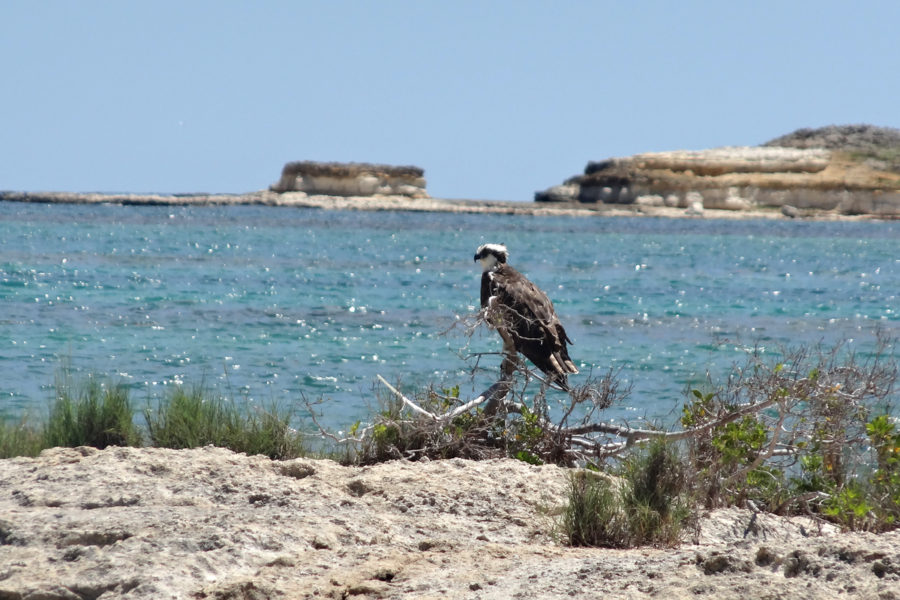
Now you have time. Lots of it. So, why not spend it setting up an eBird account? (If you are in the Caribbean, use eBird Caribbean). You can start logging your counts on a daily basis and contribute to the global knowledge base on birds. Become a citizen scientist! You may enjoy wearing this new hat while on lock-down, and beyond. Do not forget to also keep a good bird guide at hand, or consult with a phone app, like Cornell Lab of Ornithology’s Merlin Bird ID App.
Yards Are Good for You…and the Birds Too!
There is another activity that you might also enjoy, whatever the size of your yard. And you and the birds will benefit! Gardening is a popular, but an often time-consuming pastime that you may find you now do have some time for! The plants that suffered months of neglect due to our busy schedules can now become the pride of our eyes as we nurture them with attentive care. Having trees and small plants around the house has many benefits: Gardening is therapeutic and a healthy occupation; flowering plants offer nectar to birds and bees; trees and plants provide shade and vegetation around our homes; and trees lining our streets can lower temperatures by a few degrees. Many plants attract birds (and butterflies) also! For more information and ideas on what can work, explore our free, downloadable eBook on Native Trees and Plants for Birds and People in the Caribbean. For the less adventurous, how about trying your hand at an herb collection that can thrive in small pots? Basil and French Thyme grow easily in tropical climates.
For the industrious, try your hand at composting! With a bit of extra time on our hands, it is much easier to separate your waste. Do not forget to separate plastics for recycling and to refrain from dumping organic matter. Compost it and use it to fertilize your garden.
Finding Balance…With Nature
You see, being at home is not that bad at all. Just sit down, plan out a list of actions, and if you have children in the house, get them involved. I will never forget the first time my son picked a sweet pepper from the tree he nurtured himself! He watched over that plant from seed in the dirt to picking that pepper, and the look of pride as he picked it, and watched it being incorporated into our meals is unforgettable.
While our daily routines are disrupted, the birds happily continue with theirs. We can learn more about them and enjoy their day-to-day behavior. Who knows, they may help us to achieve that mental and emotional balance that we are seeking these days.
While we wait out this pandemic in the safety of our homes, it is important that we keep ourselves busy, focused, and grounded. Most importantly, let’s be responsible and be safe!
Earth Day, April 22nd, is also the start of our one month Caribbean Endemic Bird Festival (CEBF). Join us as we celebrate the CEBF with our virtual “From the Nest” edition! The theme is Birds and Culture. We are sharing an Endemic Bird of the Day, colouring pages, online bird puzzles, webinars, and links to fun, free activities and resources to do with your kids. Follow us on social media (@BirdsCaribbean) and check our website every day for new stuff. We look forward to sharing with you about our beautiful endemic birds! #CEBFFromtheNest
Thanks so much to Natalya Lawrence, Emma Lewis, and Nathan Wilson for this inspiring essay.
